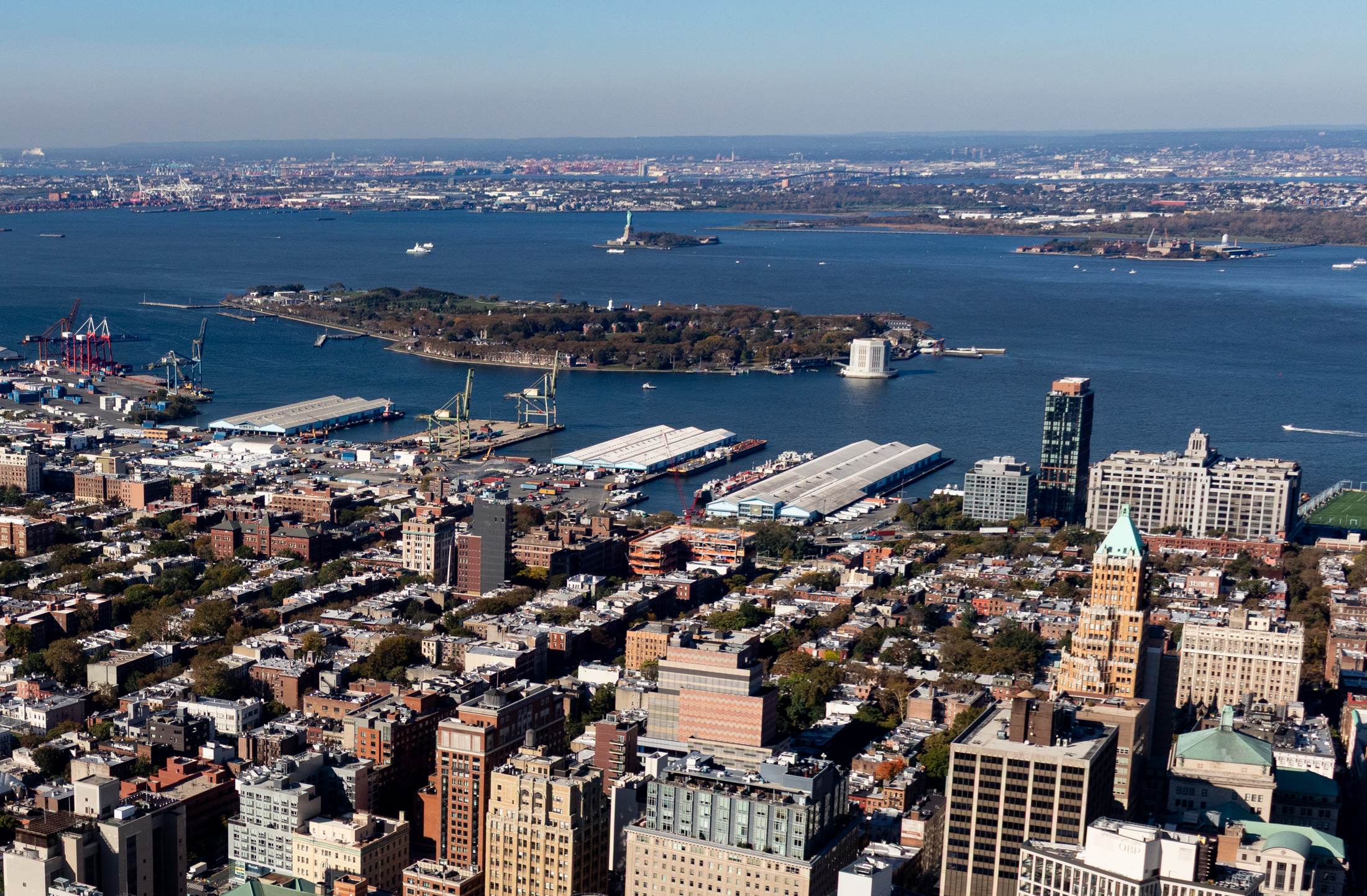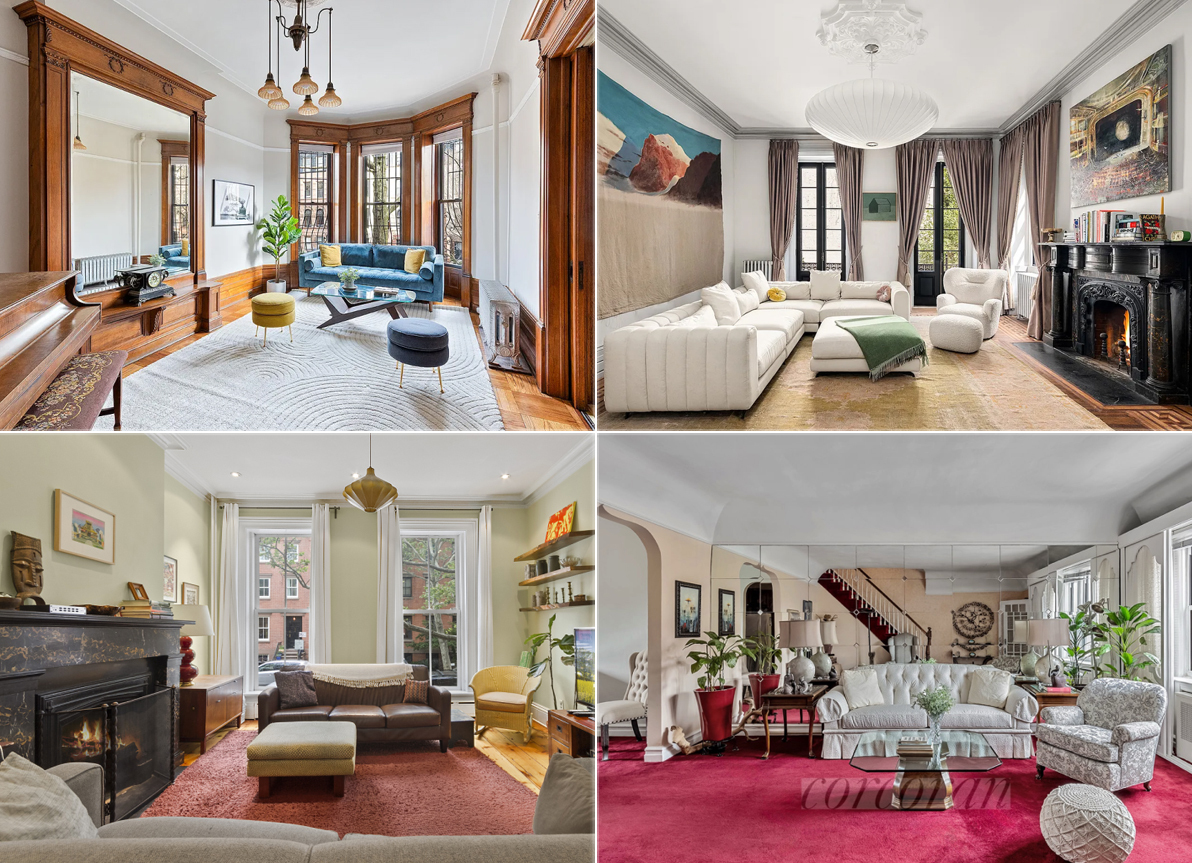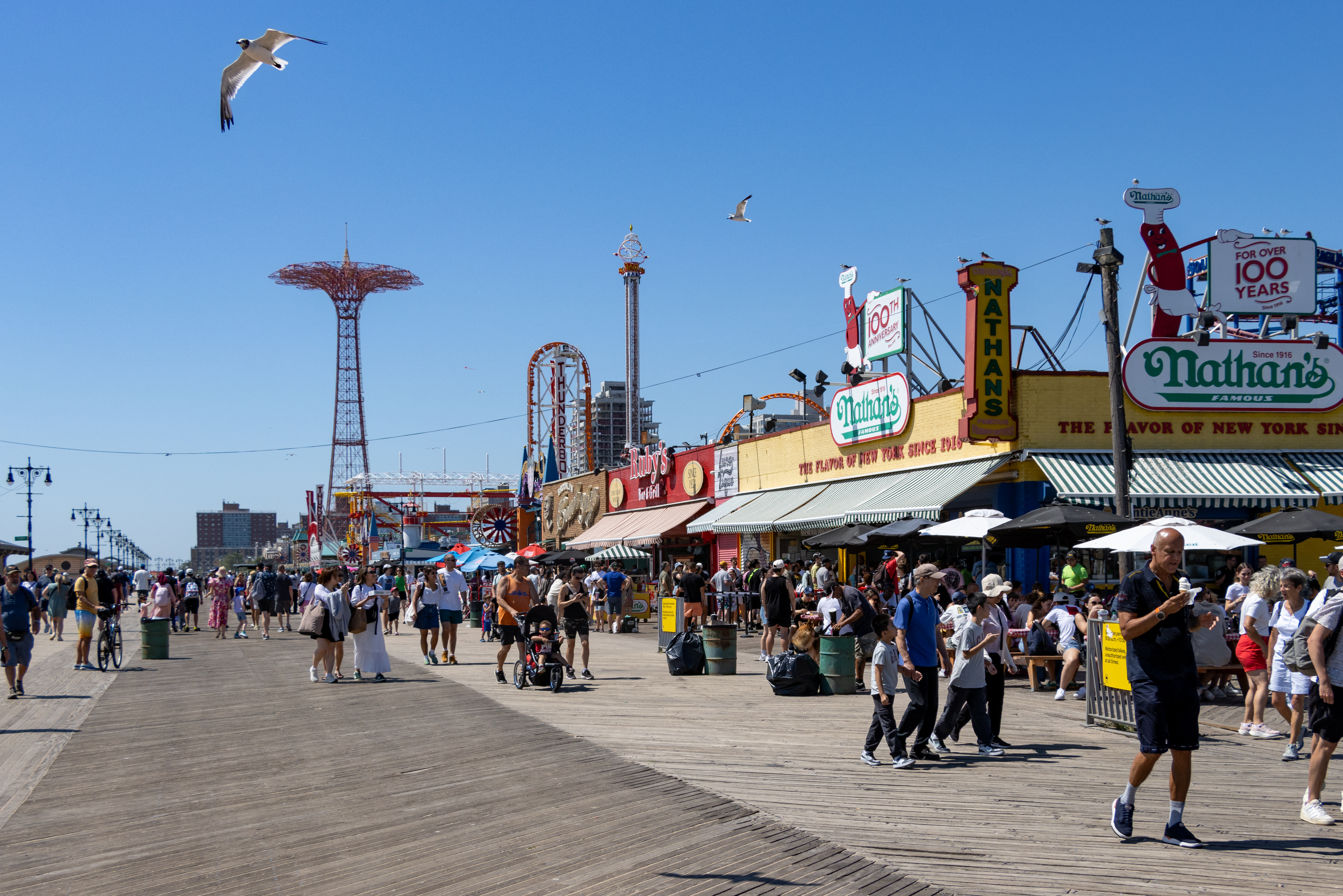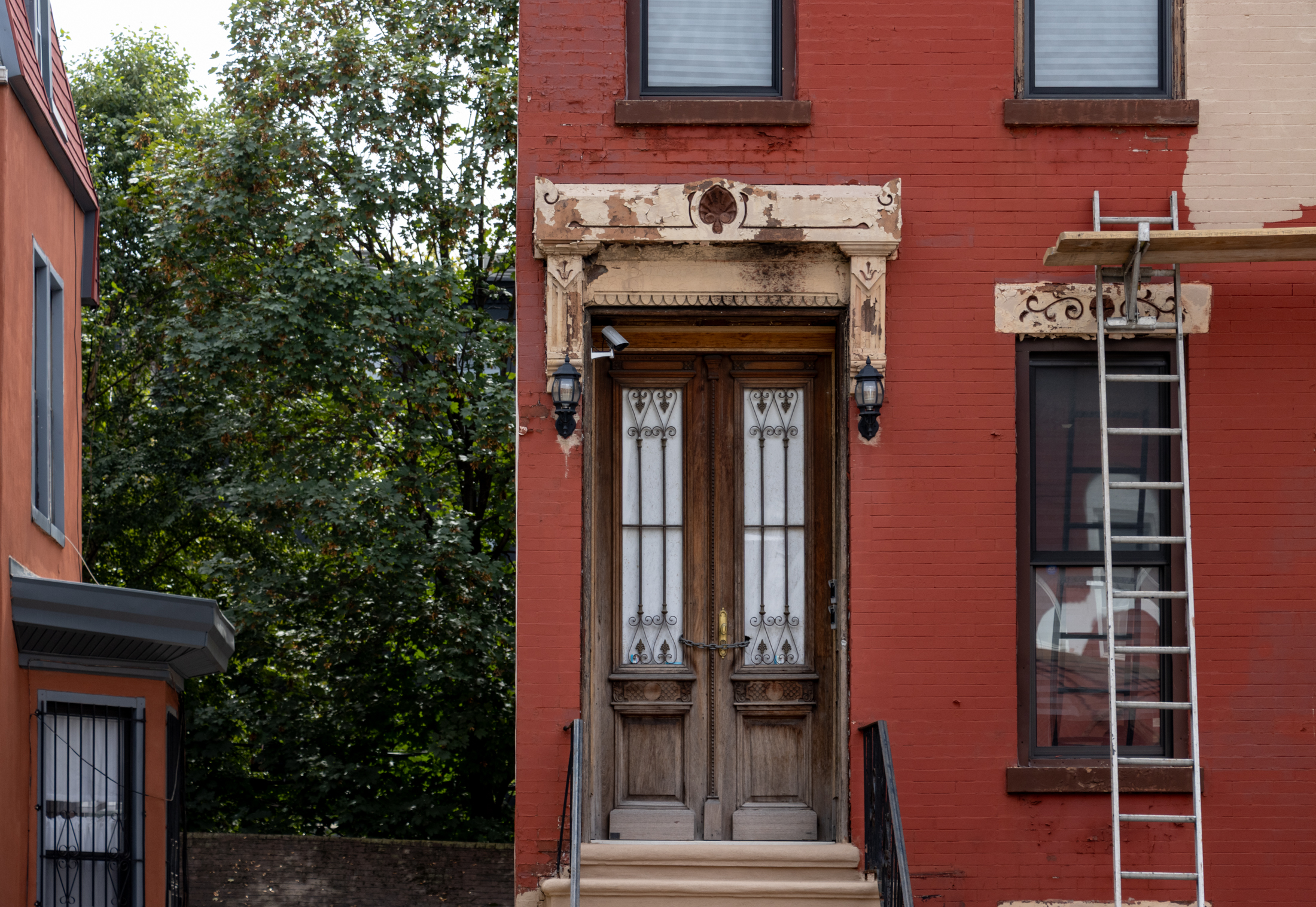Market Pulse: Bullish Words From a Broker
We thought readers would be interested to hear these thoughts on the Brooklyn market that a broker at a major firm shared with us via email a few days ago. The market truly is stronger than ever. It is really nutty in a good way now. There are almost constantly multiple bidders at or above…
We thought readers would be interested to hear these thoughts on the Brooklyn market that a broker at a major firm shared with us via email a few days ago.
The market truly is stronger than ever. It is really nutty in a good way now. There are almost constantly multiple bidders at or above full price now. Things are now routinely selling in a week to 10 days.
Obviously, a broker has a vested interest in perpetuating the perception that the market is strong, but it seems to be consistent with what we’re hearing anecdotally. Does this jibe with what others are seeing out there? Especially interested in hearing from brokers on this one.





interesting discussion, esp. vis a vis the reasons for bklyn’s continued strength. i totally agree that manhattan is, every day, a less interesting/desirable place to live than it was yesterday. unless you’ve got 8 or 10 mil, in which case manhattan rocks. for the rest of us, bklyn looks good. but, in case you haven’t noticed, the more bklyn is changing, the more its starting to look (and feel) like manhattan. doubt me? check out union hall this weekend. also, the additional burden being placed on infrastructure (traffic, cops, schools, etc.) is beginning to wear some of the shine off the “bklyn is better cause the quality of life is better” equation.
i wish you would pack your things and take them elsewhere sylvia.
reading your posts on here makes me realize what a sad, bitter, negative person you are.
truly. get a life. if you sit around all day contemplating the end of the world as you suggest, you really have a very unhappy life and it shows in each and every one of your comments on this thread.
wake up and smell the roses, honey. there is more money in nyc than people know what to do with. it’s not disappearing as fast as you might claim. unemployment in nyc is at record lows, wall street in 2007 is expected to gain 10-15% over this past year’s bonuses, we are moving towards being one of the greenest cities in the us, mortgage rates are still low, the subprime market stuff seems as though it will not have as bad an effect on the overall housing market, more and more people than ever want to live in nyc. oh, and i don’t think we need to worry about “Feeing our families” since 60% of americans are obese.
and believe it or not, some of us derive great pleasure by living/fixing up our homes, taking pride in our neighborhoods, getting involved with the communities we have invested in and trying to make them better places for for our families and the next generation.
you however like to bitch, moan and gripe about everything under the sun.
why would you buy a condo when you have little to no control over how the building is run and who your neighbors are? In a co-op, you have to co-operate with the people you live with, making sure that everyone enjoys their quality of life.
When all those condos turn into absentee-investor rentals, you’ll see maintenance skyrocket and your quality of life go straight down the shitter.
Once a building gets a sizeable number of investor-owned rentals, the only thing that matters is keeping the maintenance low. That means no fresh paint, no new gym equipment, fewer visits from the exterminator, etc. And that becomes a vicious cycle downward. Co-ops avoid this by restricting absentee owners and rentals.
Think of Marty McFly visiting Hilldale in 2015.
Don’t worry, bklynboy, I got your back. (I love having this argument over and over.)
Doesn’t really matter if the real estate bust in NYC (or “softening”, or “slowdown” or “apocalypse” or whatever you want to call it) starts now or in 2 years or in 5 years, if you signed on for a 30-year-mortgage. Doesn’t really matter if I was wrong last year, or I’m wrong now, or I’m wrong next year. We’re not talking about a pair of shoes that you can return to the store if they don’t fit.
Renting may be so last season, but crushing levels of debt are forever.
Who cares if the rest of the country has already seen a huge housing bust, and the economic repercussions of that are just now starting to be felt? For that matter, who cares if the polar ice caps are melting and in 30 years NYC might be underwater (or at very least, flood every time it rains)? Who cares if the US is facing a huge energy crisis and the last time we had one of those, the world went into recession? Who cares if gas is above $3/gallon, the price of milk in NY went up 20% since the beginning of the year, and we’re effectively using up the last third of our national topsoil to make ethanol, choosing to fuel our cars over feeding our families? Who cares that the continent doesn’t have enough natural gas to meet our electricity demand and that even if it did, the grid is so outdated, we’re virtually guaranteed more blackouts? Who cares that our household savings rate has now dipped into negative territory and the last time that happened was right before the Great Depression?
The big picture is so boring. Concentrate on whether your brownstone has enough period details and whether Brooklyn has enough “cachet” vis-a-vis Manhattan.
Brooklyn real estate is HOT. Pawn your belongings and buy real estate now, before you miss out.
What bubble?
“the “brooklyn” market is not hot. “Rich white brooklyn” is hot, for sure, and for 99% of people on this site that is all that matters, ”
– You are 1/2 right. About people on this sight only concerned about rich white brklyn.
But all of Bklyn (and the rest of NYC) is hot – not just rich white Manh/Bklyn. etc – because of large % of immigrants in this city and their desire to own.
Not a factor covered by NYTimes, etc because not their demographic but IMHO that is much bigger factor than ‘people priced out of Manhattan’ and all the other code phrases for white, college educate folks used today.
The immigrant demographic is huge compared to NYTimes, Brownstoner demographic.
Okay, let’s agree to disagree. But I’ve just got to take you to task on one last thing. It’s great that your building has a friendly atmosphere and everyone knows eachother (my 70 unit condo building is the same, btw), but, come on, battles between coops owners (between eachother and their boards) in NYC are legendary. Owning a coop doesn’t protect you from living next to an asshole.
ok, 16%. i was closer at 10% than my friend up there with his 30% figure.
sorry, but i’ll take my co-op with a 16% lower price than your condo anyday of the week. i get that it’s not for everyone, so we should just agree to disagree.
I looked at apartments for almost a year before closing on my place in Clinton Hill. It’s been my experience that if anything is remotely good, it will be gone withing a week – certainly less than two. Moreover, the asking price is more of a suggestion than anything else.
When it came to submitting a bid on a place I liked, I was initially advised by friends that the “market isn’t what it used to be” and that “no-one pays asking price anymore”. (These friends owned homes on Long Island, which I now understand to be a very different market.) I kept wondering why I was losing out on apartment after apartment until I stopped to look around me, and truly saw just how many other folk were crowding into the home-opens. The competition was very fierce. To try and get a feel of what these places actually went for, I tracked the mortgages taken out on my “lost” properties’ via the New York City Department of Finance, which keeps records of each property in the five boroughs. I was stunned to learn that these properties – without exception – went for well over the asking price. (In one memorable case, I learned that a two-bedroom garden apartment in Park Slope I was bidding on went for $70K over the asking price in less than a week. I offered $35K over the asking price, and a friend of mine, who is a realtor, relayed to me the final purchase price.)
Maybe real estate markets in most of the US are feeling depressed, but if the last year has taught me anything, it’s this: people’s appetities for housing in Brooklyn was and remains rampant. (Well, in the nabes I was looking in, anyway.) That said, it’s going to be interesting to see how the string of new condo developments will affect the market.
i am 10:06. yes, thanks for clarifying…75% of non rentals are co-ops. i am well aware that us homeowners are in the minority here.
and to the person trying to get me on the condo bandwagon, i am quite aware of the differences in terms of price (although it is most certainly not 30%) as well as nature of the residence. the thing is, i have ZERO interest in a condo. you can tell me how much of a greater investment it is till you’re blue in the face, but i don’t prfer it. i bought my home for that purpose…to live in it and be happy. not because i was concerned that a condo was going to be worth slightly more down the road.
and i think you are wrong…i have numerous friends who bought condos here in the past 3 years, and all but one say they wish they hadn’t. not only because they have commented on how their buildings have not been kept up well and that they have found that the building has become quite “transient” but they have also commented many times about the poor construction and problems they’ve had with their places. when they come to my place they always comment how friendly an atmosphere it is and love that i know all my neighbors by name.
of course there IS good new construction, but when we’re talking about 400K and under, my place in a 100 year old brownstone has stood the test of time more than some of these places that have been around for only 3 years.
oro, forte in 10 years will be total crap. don’t get me wrong, i’m glad they’re being built, they are great for brooklyn and the new downtown but i have no interest whatsoever.
i think you need to check your numbers a little more closely, btw. i believe the difference in co-op/condo average and median prices is more in the neighborhood of 10% citywide.